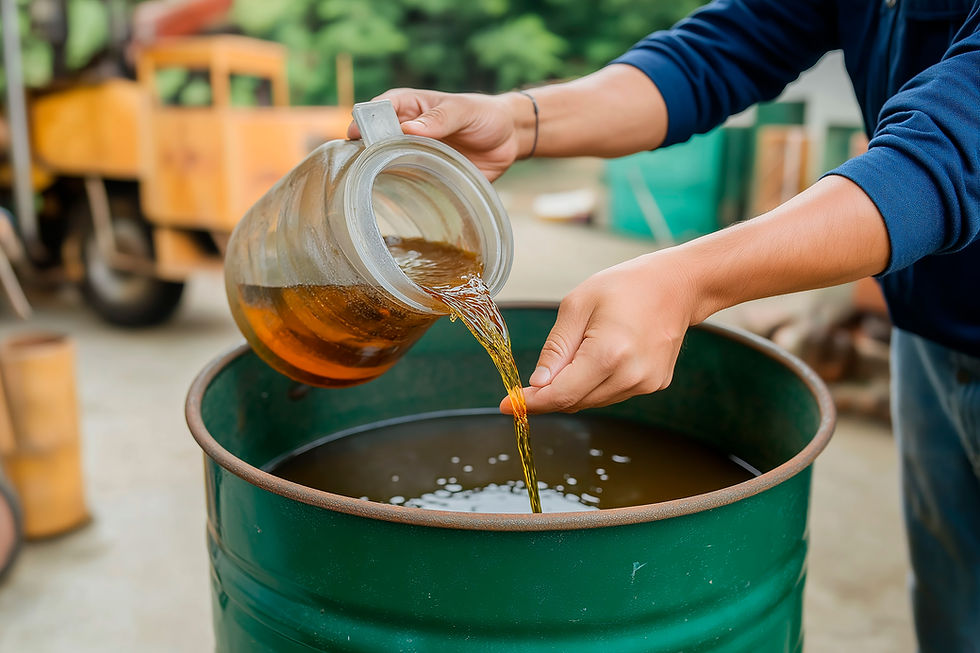Untapped Potential: How Used Cooking Oil (UCO) Can Fuel Sustainable Aviation in the Philippines
- jdsantos2
- Jun 11, 2025
- 2 min read

Turning Kitchen Waste into Jet Fuel
The aviation industry is urgently seeking cleaner alternatives to fossil-based jet fuel. One surprising candidate? Used Cooking Oil (UCO). It’s abundant, renewable, and already proven as a feedstock for Sustainable Aviation Fuel (SAF)—a cleaner-burning alternative that can reduce aviation emissions by up to 80%.
The Philippines’ UCO Supply: A Sleeping Giant
The Philippines generates an estimated 300 million liters of UCO annually, from households, restaurants, and food manufacturers. Yet, most of this resource is either dumped improperly or recycled informally—with immense untapped potential for SAF production.
UCO for SAF: Big Opportunity, Big Gaps
According to a study by Enverify, if even a portion—say, around 20%—of the Philippines’ estimated 300 million liters of annual UCO were converted into SAF, it could potentially yield up to 60 million liters per year. This volume will bring the local production much closer to a 5% SAF blending goal for PH aviation by the 2030s, pending further validation and scale-up feasibility.
Benefits include:
Green jobs in waste collection and refining
Reduced fossil fuel imports
Climate-aligned investments
But major barriers remain:
Few structured collection systems
Unsafe reuse and informal resale
No clear policy support for UCO as fuel feedstock
Low awareness in both public and private sectors
What We’re Learning from Marikina
Our Enverify–ISA pilot project in Marikina showed how impactful a citywide collection system can be. With 180–200 liters collected per day from households alone, that’s equivalent to over 17 million liters per year if replicated across other communities.
From Frying Pan to Flight Plan
When properly collected and processed (via HEFA technology), UCO becomes a certified SAF. It’s already approved for blending in commercial flights under CORSIA and ASTM D7566 standards—and it works with today’s aircraft and infrastructure.
The Roadmap Forward
Island Skies Alliance (ISA), together with key partners, is spearheading a roadmap to bridge these gaps and catalyze a UCO-based SAF ecosystem. Key actions include:
Piloting municipal collection models, such as the Marikina example, and expanding them to other LGUs.
Comprehensive UCO supply chain mapping, covering both household and commercial generators.
Technical Working Groups (TWGs) focused on standards, certification protocols, and enabling policy recommendations.
Engagement with national agencies to align with existing waste management, renewable energy, and aviation policies.
Education and outreach to raise awareness among businesses and the public.
A Call to Collaborate
UCO may start as kitchen waste—but its potential to fuel cleaner skies is real and within reach.
We invite:
Industry stakeholders to collaborate on refining, logistics, and scale-up.
Government agencies to support policy frameworks and incentive structures.
LGUs and commercial generators to participate in pilot programs.
Potential members and partners to join our mission at Island Skies Alliance to create a local SAF economy powered by waste-to-fuel innovation.
Let’s turn fryer oil into flight fuel—and transform waste into climate action.
.png)